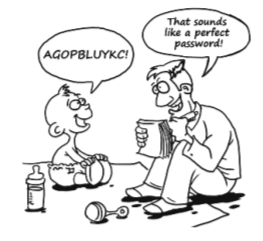by Troy Heck, Benton County Sheriff
Every year, cybercriminals steal billions of dollars from individuals and companies. At the same time, each passing day brings us closer to a time when avoiding electronic transactions will become impossible. Regardless of whether you have embraced the change to electronic transactions and online banking, or have been dragged into this world, employing these strategies will reduce the odds that you will become a victim of cybercrime.
Avoid fake websites and open Wi-Fi. Ensure that the websites you are using are legitimate websites. Obtain your bank’s website through their official channels of communication. Obtain the correct website from bank documents or a personal telephone call. Because phishing attacks are so common, avoid clicking any links in an email directing you to a banking site. These are fraught with danger.
When shopping or paying bills online, ensure that your browser is indicating that you have a secure connection with the website. Your browser will likely display a small closed padlock in or near the address bar to indicate a secure connection. the website address may also begin with https:// with the “s” indicating a secure connection. If you don’t see any indicator of a secure connection you should not enter your financial information into this website. Your secured home network or your cellular data are the safest options for electronic transactions. Away from home, beware of open Wi-Fi networks that expose your information to hackers. Entering your banking information over an open Wi-Fi network is akin to placing that same information on a billboard in the middle os St. Cloud.
Use strong and secure passwords. Use unique and strong passwords for your online banking and purchasing. Avoid passwords containing information easily associated with you, like your children’s names or your home address. Choose easily remembered words or phrases and substitute numbers or symbols for certain letters. For example, the phrase “everybody loves donuts” could become this password “ev3ryb0dy!ovesd0nuts.” Avoid writing passwords down and storing them in plain sight. Additionally, ensure you have current and effective anti-virus software running on your computers and mobile devices to fend off malware.
Check your banking and credit card statements regularly. Be alert for any unauthorized activity on your account. Often times, cybercriminals will make small purchases to determine if the account information they have stolen is tied to an active account. The transactions are kept small in the hope that you will not notice before they have the opportunity to make larger transactions. Many financial institutions and credit cards offer notification services. These services send you an alert if certain conditions are met, i.e a charge of a specific limit. Subscribing to these alerts may help you stop cybercriminal in their tracks.
The road of electronic transactions and online banking has some potholes and steep ditches. However, with the proper amount of attention and care, it can be navigated without too much trouble. Employing these tips and a healthy amount of caution will get you to your financial destinations.

